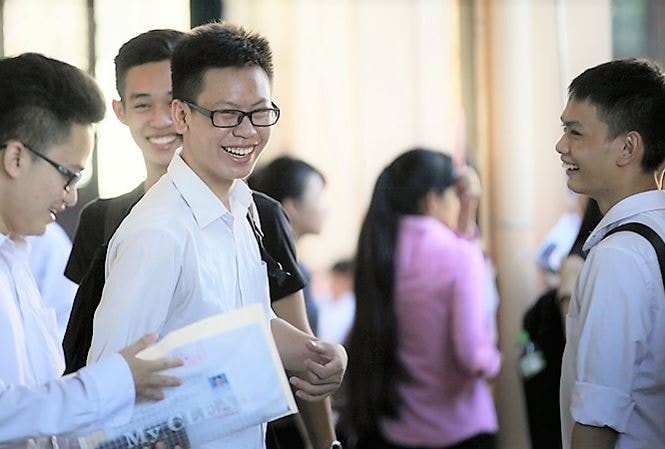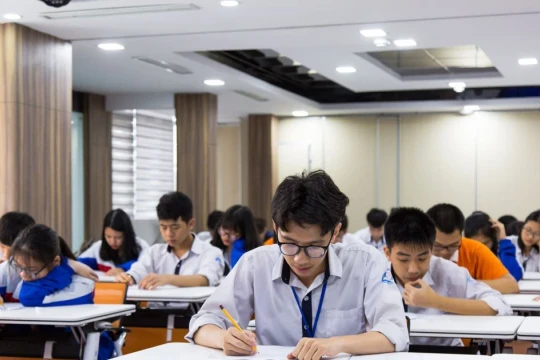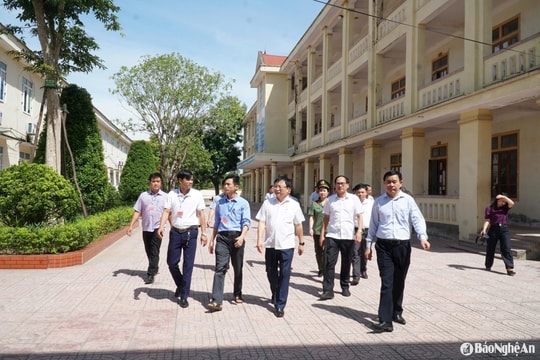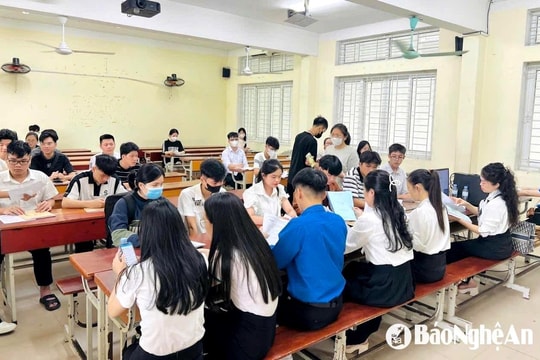University and College Admissions 2018: Which majors will dominate?
The 2018 admissions season signals many changes in the career choices of candidates as well as in the training of schools. Which industries are in need of human resources? How will schools innovate in the era of the 4.0 industrial revolution?
Logistics - majorare in need of human resources
Foreign Trade University has just announced its 2018 enrollment plan. There are two notable new points in the school's enrollment plan, which are enrollment by two methods: admission based on national high school exam results and combined admission.
The combined admission method is expected to be implemented before the admission method based on the results of the national high school exam is implemented. Candidates who register for the combined admission method, if they do not pass the exam or do not confirm their enrollment, can continue to participate in the admission method based on the results of the 2018 national high school exam.
The combined admission method applies to English-taught programs. A second new point is that for the first time, the school enrolls students in the international career-oriented logistics and supply chain management major with 100 quotas.
 |
The University of Transport Technology is currently training in Logistics and Multimodal Transport. The school's leaders said that this major currently lacks students to supply Japanese companies. "Not only do Japanese companies need human resources in this industry, but foreign companies are also in great need," said the leader of the University of Transport Technology.
Regarding Hanoi University of Science and Technology, Mr. Nguyen Phong Dien - Head of University Training Department said that this year the school will increase the quota for IT majors by several hundred. Especially for hot IT majors such as information security - network security, data communication and computer networks, computer science...
Change methodtrain
According to Mr. Nguyen Phong Dien, since 2009 when the school implemented credit-based training, lecturers had to attend classes too much and had no time for research. How to reduce the workload for teachers while still ensuring quality? Even though students can choose their subjects and study time, many students still do not attend class. Therefore, there must be flexible teaching methods for both teachers and students. Moreover, in the 4.0 era, new methods and technologies must be introduced early in schools.
“The school plans to switch to a hybrid teaching method: partly online, partly in class. According to the design, students will have 30% of their training online, and the remaining 70% will be in class. This achieves two goals: students will have more convenience, and lecturers can work anywhere, without having to go to class,” said Mr. Nguyen Phong Dien.
However, the teaching process will not be left entirely to the students, but there must be interaction between lecturers and students. According to Mr. Dien, major universities in the world are using this mixed training form. The school will pilot it in the summer semester of 2018. Then evaluate the impact, effectiveness and deploy it widely.
In addition, Hanoi University of Science and Technology will also innovate foreign language training. It is expected that artificial intelligence will be involved in this training process. Mr. Dien said that according to the school's statistics in 2016 and 2017, the school's input accounted for 50% of the 5% of candidates with the highest scores in the whole North.
Surprisingly, the students' foreign language proficiency is at a low average level. Some students failed the TOEIC test 12 times, failing to score 450 points. Therefore, the training method will have to be changed./.



.jpg)
.jpg)



